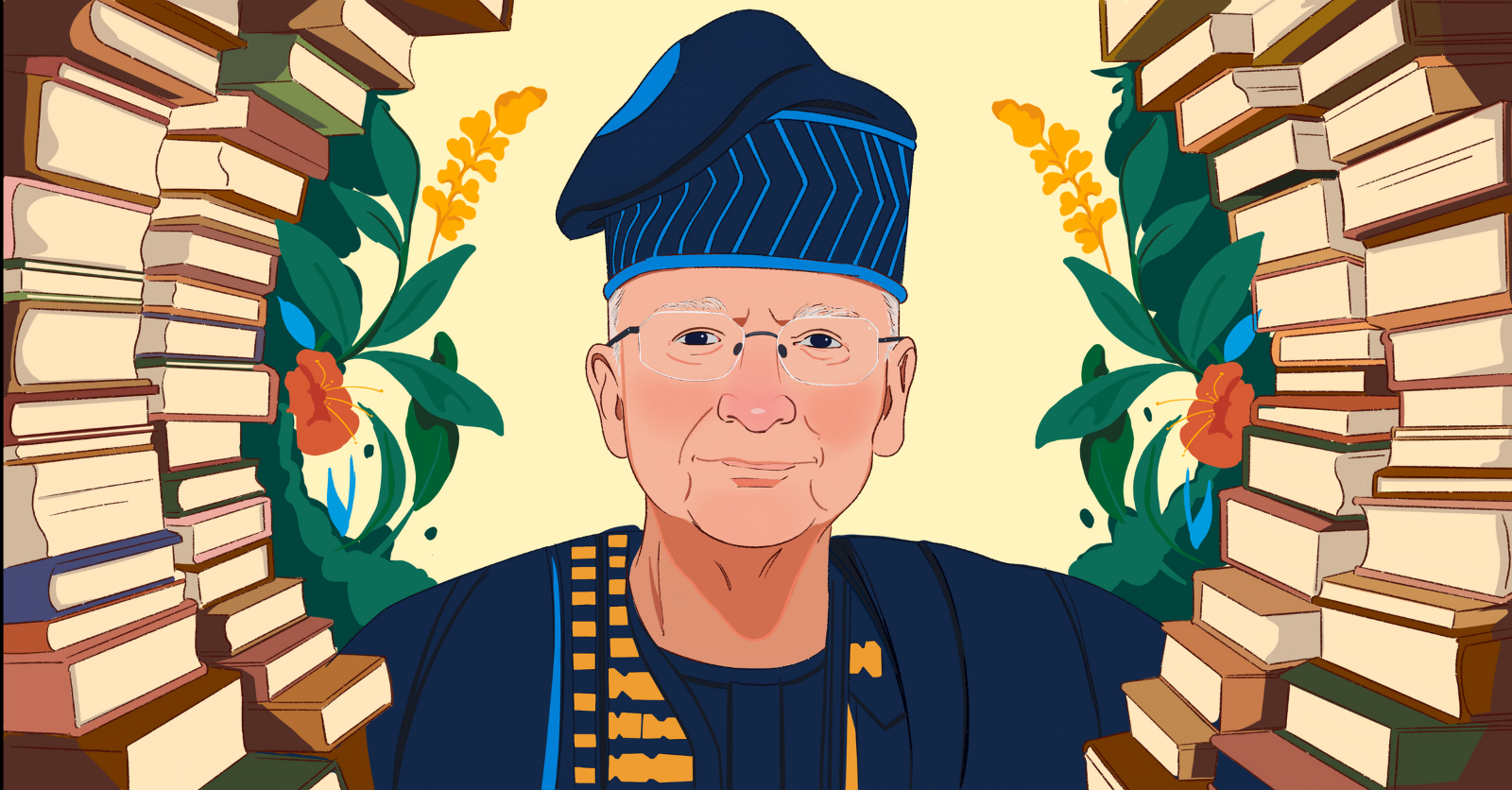The Nigerian Heart of Joop Berkhout
Joop Berkhout, an icon of Nigeria’s publishing industry for almost six decades, died in February 2025 in Ibadan. He nurtured generations of writers and built Spectrum Books into a publishing powerhouse, yet also embraced the ‘big man’ culture of his adopted country with remarkable ease.
Ooni Olubuse II began to cough, and the people around him in the palace beat their chest, including the Dutchman by my side, dressed in a white agbádá and wearing a string of red coral beads around his neck. Everyone but me, the Dutch writer visiting Nigeria for the first time and still oblivious to Yoruba traditions. It was 2009. The Dutchman in traditional attire who had invited me to see his friend, the now late Ooni of Ife, Oba Okunade Sijuwade Olubuse II, was Chief Joop Berkhout. Earlier this year, on 10 February 2025, he passed away aged 94 in Ibadan, where he’d lived for over half a century...




